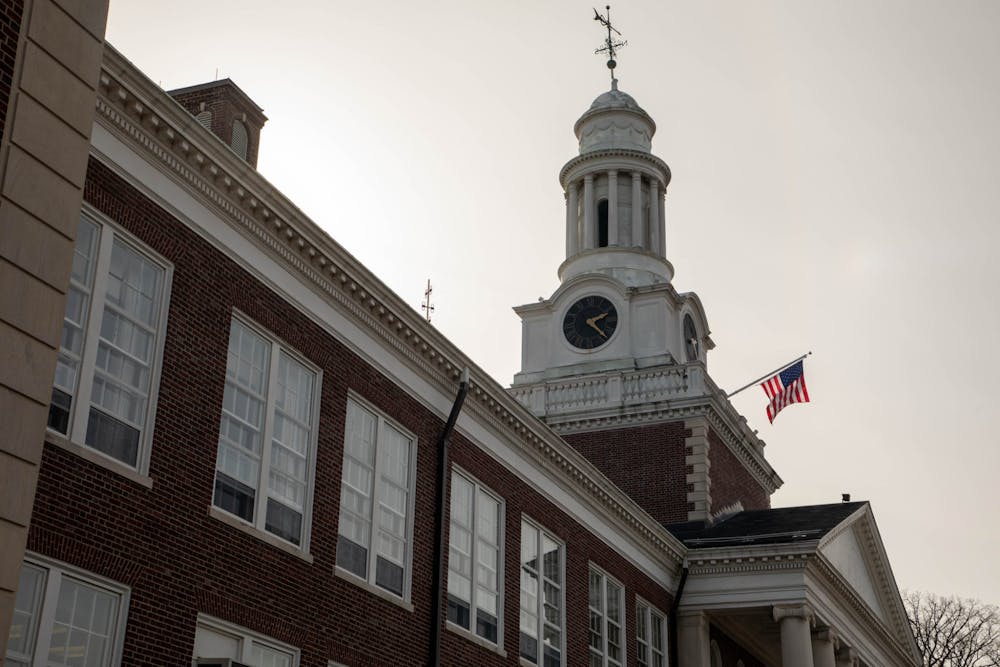By Raeanne Raccagno
Copy Editor
Before the start of the spring semester, the College’s faculty was informed of LIONS Plan updates regarding faculty responsibilities in terms of workload, support of scholarly activities and a teaching release model.
Suzanne McCotter, interim provost and vice president for academic affairs, biology professor Matthew Wund, and chemistry professor and Faculty Senate President Abby O’Connor signed an email to the College’s staff, detailing the progress their LIONS Plan working group has made.
According to the email, the additional workload for full-time faculty is no longer being considered after conversations between the LIONS Plan working group, the College’s President Michael Bernstein and many stakeholders. The canceled proposal is also due to an improved budget outlook along with stakeholders making arguments for the usefulness of maintaining the teacher-scholar model described in the Memorandum of Agreement #62.
In the early 2000s, the College underwent an academic transformation that changed the faculty’s workload.
“There was an MOA between the union, the AFT and the administration at that time that said that three of the faculty weighted hours, or the equivalent of one class, would be used for scholarship,” McCotter said. “And three would be used for mentoring, advising and course redesign.”
The LIONS Plan proposed increasing the faculty workload by the equivalent of seven classes across the year.
“That was what we were thinking about and trying to come up with, would this work? What would this do to who we are at TCNJ and what's the trade-off with it? So those were the questions that we were thinking about,” McCotter said.
McCotter, O’Connor and Wund also said in the email that they will be writing to the Steering Committee to ask for Shared Governance to consider a change in the Faculty Professional Activity Form and Library Professional Activity Form, which are documents that confirm how faculty and librarians are accounting for their time.
The change to the FPAF/LPAF form would require post-tenure faculty to account, more thoroughly, for their creative or scholarship process aligning with their individual disciplinary standards' expectations. It will also be proposed that faculty who are not engaging in a scholarship program, as described by MOA 62, either seek an alternative administrative assignment or attain their three faculty-weighted hours via instruction.
“We expect that the shared governance process, in collaboration with the AFT, will develop a modified FPAF/LPAF that is thorough, fair, not too onerous to complete and which will efficiently integrate with the 5-year review process,” the email said.
According to the email, discussion has begun on funding the reinstatement of scholarly activities, and in the coming weeks, the College will ask for a volunteer task force to help reimagine SOSA.
“We want to make sure that we are taking a really open and honest look at, what are activities of our teacher scholar-model that we can support with SOSA?” McCotter said. “You don't often have an opportunity to re-envision something that's been going on for a long time, so we want to ask people to think creatively about it.”
The email also disclosed that the Council of Deans, in consultation with AFT, is developing a model to equitably allocate teaching releases to department chairs and program coordinators. According to McCotter, for about the past 20 years, the College has been trying to come up with a consistent design for department chair reassignment.
Due to the absence of a determined formula, different departments have decided on their own teaching releases, leading to inequity. Once the new model is fully developed, a letter to Steering will be considered by Shared Governance.
The email outlines that there will be an increase in tenure track positions which will be assigned based on demand, along with reviews of disciplinary trends and evolving teaching practices.
The email also noted that the more positive budget outlook is a plus, but more will need to be done “to make sure that our organization is as efficient and sustainable as possible.”
“The better budget outlook is the result of really hard and sometimes difficult work by everyone on the campus,” McCotter said. “We don't want to take that for granted, this has been a real team effort and will continue to be a team effort.”







